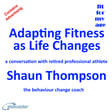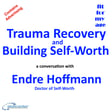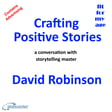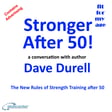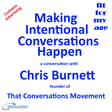
The Fitness Mindset
Over eight years as a personal trainer Scott Friedman witnessed a lot of people struggle fulfil their fitness aspirations. They were putting the work in, but the results didn’t materialise.
Scott decided that this provided a great opportunity for him, so he set about finding out why his great workout programmes and diet did not work for some people.
His research identified that before attempting anything new you need to have the correct mindset.
In this episode of The Independent Minds Scott explains how he had turned the findings of his research into a new approach to health, well-being, and personal training.
You will hear Scott and host Michael Millward discuss the connections between mindset, and sustainable actions. The importance of developing gratitude, self-awareness, and building momentum.
In this episode, of The Independent Minds Scott mentions Malnati’s an Italian restaurant in Chicago and the nutritional value of a pizza. Scott has requested that we include a link to the nutritional information provided by Manati’s on their website
Fit For My Age is made on Zencastr.
Zencastr is the all-in-one podcasting platform, on which you can create your podcast in one place and then distribute it to the major platforms like Spotify, Apple, and Google. It really does make creating content so easy.
If you would like to try podcasting using Zencastr visit zencastr.com/pricing and use our offer code ABECEDER.
Find out more about both Michael Millward and Cathy Nesbitt at Abeceder.
Visiting Chicago
Scott Is based in Chicago, Illinois, USA
If you would like to visit Toronto or Canada the best place to make your travel arrangements is The Ultimate Travel Club.
Visit the Ultimate Travel Club and use our offer code to receive a discount on your membership fee.
• ABEC79
Matchmaker.fm
Thank you to the team at Matchmaker.fm the introduction to Scott.
If you are a podcaster looking for interesting guests or if like Scott, you have something very interesting to say Matchmaker.fm is where matches of great hosts and great guests are made. Use our offer code for a discount on membership.
MILW10
Three the network
If you are listening to The Independent Minds on your smart phone in the UK, you may like to know that Three has the UK’s Fastest 5G Network with Unlimited Data, so listening on Three means you can wave goodbye to buffering.
There is a link in the description that will take you to more information about business and personal telecom solutions from Three and the special offers available when you quote my referral code.
WPFNUQHU
Being a Guest
If you would like to be a guest on Fit For My Age, please contact using the link at Abeceder.co.uk.
We recommend that potential guests take one of the podcasting guest training programmes available from Work Place Learning Centre.
We appreciate every like, download, and subscriber.
Thank you for listening.


